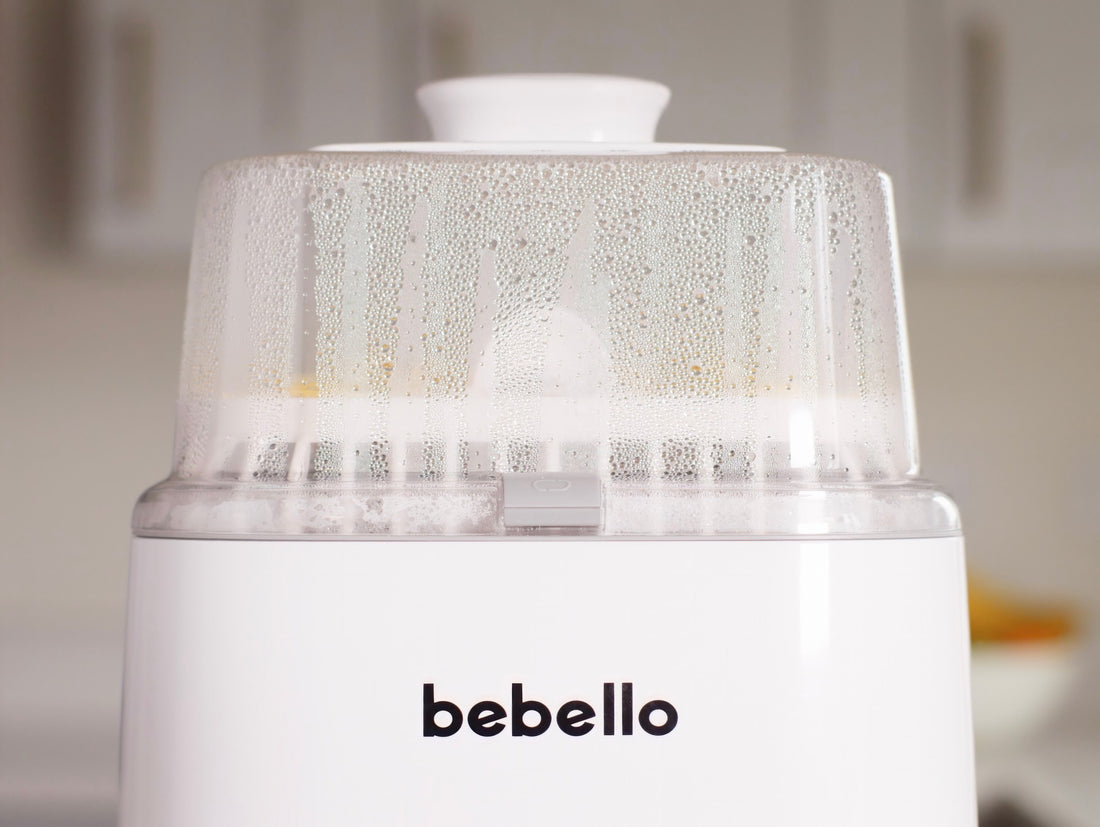Ensuring the safety and health of our little ones is always a priority, and proper bottle hygiene plays a crucial role in their well-being. In this guide, we'll delve into the considerations surrounding when to transition away from sterilising baby bottles.
Understanding Sterilisation
Sterilising baby bottles is a common practice aimed at eliminating harmful bacteria that could potentially cause illness in infants. Especially in the early months when babies' immune systems are developing. Traditionally, parents have relied on methods such as boiling water, bottle sterilisers, or sterilising solutions to ensure bottles are free from germs.
Advice on sterilisation differs from country to country
In the United Kingdom, the National Health Service (NHS) advises:
- sterilising bottles and other feeding equipment until your baby is at least 12 months old.
In the United States, the Centers for Disease Control and Prevention (CDC) recommends:
- Daily sanitization for babies under 2 months old, premature births or for newborns with a weakened immune system. After that, daily sanitizing of feeding items may not be necessary for older, healthy babies, if those items are cleaned carefully after each use.
Several factors can influence the decision on when to stop sterilising baby bottles:
- Feeding Method: Exclusive breastfeeding may reduce the need for sterilisation compared to formula feeding, as breast milk contains natural antibodies.
- Baby's Age: As babies grow older and their immune systems strengthen, they become more resilient to germs, decreasing the need for sterilisation.
Sterilising baby bottles is time consuming
The extra time that sterilisation takes after washing is often a driving reason for parents to want to drop this task. For parents who want to find an easier way to sterilise, or want to keep going; Bebello Washer offers a hassle-free option.
Bebello Washer will wash baby bottles, nipples, breast shields and pump parts, then automatically completes a sterilisation cycle. This saves the time and hassle of washing, and eliminates the need to transfer parts from sink to steriliser to drying rack.
Conclusion:
Knowing when to stop sterilising baby bottles can be a decision influenced by various factors, including feeding method, baby's age, and healthcare recommendations.
While guidelines may differ between countries such as the USA and the UK, the ultimate goal is to ensure the safety and well-being of your little one.
Bebello Washer provides a convenient solution for busy parents, removing the chore of washing & sterilising, meaning keeping baby bottles clean and safe has never been easier.
About Bebello Washer
Bebello Washer is a baby bottle washer, steriliser and dryer that automatically cleans, sterilises and dries baby bottles and breast pump parts.
Fast: Bebello washer cleans in under 20 minutes and sterilises in 10, meaning a full wash & sterilise cycle is completed in less than 30 minutes. This means parts are always ready for your newborns next feed.
Natural cleaning: Bebello Detergent is made with all natural ingredients, and sterilisation kills 99.99% of germs with natural steam.
XL capacity: It holds up to 8 baby bottles and can accommodate traditional and wearable breast pump parts.
Bebello Washer is available to buy or rent. We also offer an innovative buyback scheme to help-you declutter your house when you have finished, and to benefit the environment.

